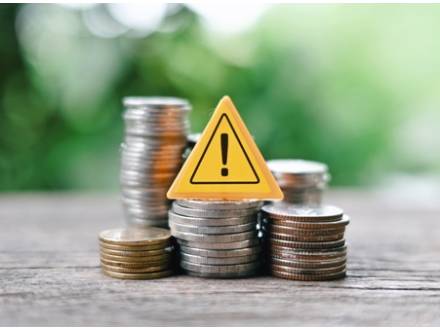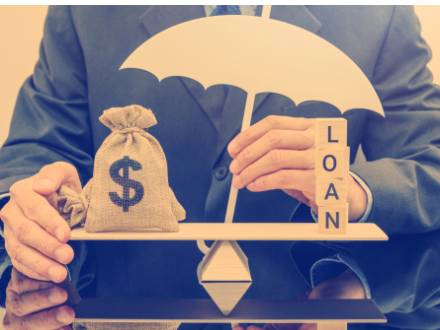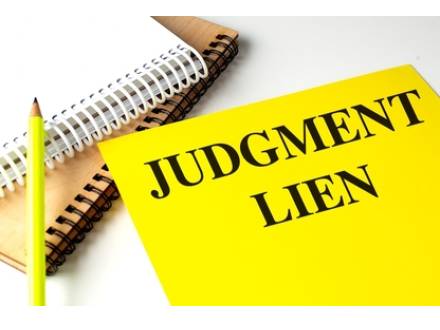 312-704-0771
312-704-0771
Recent Blog Posts
What to Know About Collecting Commercial Debt
 If debt is a part of life, it is most definitely a part of doing business. Whether to finance startup costs or the growth of your company, or simply as a byproduct of day-to-day transactions, businesses generally will incur debt. The problem for creditors arises when the commercial debtor stops paying invoices and defaults on the debt. Whether the creditor is a financing company specializing in lending to businesses or a small business that is owed money for goods or services it rendered, when another business does not pay back its debt, the creditor will want to collect on that debt as quickly and seamlessly as possible.
If debt is a part of life, it is most definitely a part of doing business. Whether to finance startup costs or the growth of your company, or simply as a byproduct of day-to-day transactions, businesses generally will incur debt. The problem for creditors arises when the commercial debtor stops paying invoices and defaults on the debt. Whether the creditor is a financing company specializing in lending to businesses or a small business that is owed money for goods or services it rendered, when another business does not pay back its debt, the creditor will want to collect on that debt as quickly and seamlessly as possible.
Business-to-business collection practices have unique considerations that make collecting on commercial debt different from collecting on consumer debt. There are unique challenges and considerations when collecting commercial debt. By speaking to an experienced Chicago, IL commercial debt collection attorney you can ensure that you maximize your chances of collecting on commercial debt and minimize losses.
What Should Creditors Do When a Debtor Files For Bankruptcy?
 If one of your debtors has filed for bankruptcy, you will receive a formal bankruptcy notice. This notice will inform you of your debtor’s bankruptcy and lay out important deadlines that may apply to you in the bankruptcy proceeding. There are a number of steps you should take when you receive notice that a debtor has filed for bankruptcy in order to protect your interests as a creditor and improve the chance that you will recover on this debt. An experienced Chicago, IL creditor’s rights attorney can advise you on the steps to take to protect your rights when your debtor files for bankruptcy.
If one of your debtors has filed for bankruptcy, you will receive a formal bankruptcy notice. This notice will inform you of your debtor’s bankruptcy and lay out important deadlines that may apply to you in the bankruptcy proceeding. There are a number of steps you should take when you receive notice that a debtor has filed for bankruptcy in order to protect your interests as a creditor and improve the chance that you will recover on this debt. An experienced Chicago, IL creditor’s rights attorney can advise you on the steps to take to protect your rights when your debtor files for bankruptcy.
Pin Down the Debt and the Debtor
Sometimes it may not be immediately clear from the notice of bankruptcy who is the actual debtor, if the debtor is operating under a different name or parent company than the client who owes your business money. First of all, do some research to determine exactly who the debtor is, how much money they owe you, and when the debt was incurred.
When Can You Object to a Debtor’s Chapter 7 Debt Discharges?
 If a customer who owes you money has filed for Chapter 7 bankruptcy, you may be concerned about the likelihood that you will be paid back for this debt. After all, your business’s bottom line is affected when customers do not pay what they owe.
If a customer who owes you money has filed for Chapter 7 bankruptcy, you may be concerned about the likelihood that you will be paid back for this debt. After all, your business’s bottom line is affected when customers do not pay what they owe.
The bankruptcy process has clear rules about how secured and unsecured creditors get paid in bankruptcy. Additionally, in most cases, a debtor’s debts are discharged in bankruptcy, meaning that bankruptcy cancels the debtor’s obligation to pay.
Yet there are times when you have legal recourse to object to the discharge of one or all of the debtor’s debts in Chapter 7. An experienced Chicago, IL creditor’s rights attorney can provide advice on whether and how you can object to the discharge of one or all of the debtor’s Chapter 7 bankruptcy debts.
How Can a Creditor Object to a Chapter 7 Discharge?
In most cases, in order to object to a discharge in Chapter 7 bankruptcy, a creditor will file an adversary proceeding. However, in a situation where you are objecting to the discharge on the grounds that a discharge has already previously been granted on a debt, you will file a motion objecting to discharge with the court. This motion must be filed within 60 days of the debtor meeting with the creditors.
Top Tools for Judgement Enforcement
 Although receiving judgment against a debtor is a good first step, it is unfortunately no guarantee that you will receive payment. It may be necessary to turn to judgment enforcement actions to collect the money. There are tools and strategies that a creditor can utilize to enforce a judgment.
Although receiving judgment against a debtor is a good first step, it is unfortunately no guarantee that you will receive payment. It may be necessary to turn to judgment enforcement actions to collect the money. There are tools and strategies that a creditor can utilize to enforce a judgment.
First, you can determine the "collectability" of the judgment, meaning how likely you are to collect on it and how much it may cost you. Then there are legal discovery methods to obtain information on the debtor’s assets. After that, as a judgment creditor, you can turn to several available tools to compel the debtor to pay. An experienced Illinois debt collection attorney can implement these tools to collect on an unpaid judgment.
Citation Lien
One of the ways to discover debtor assets and income is via a citation lien to discover assets (CDA). This method does not help you directly collect on a judgment per se, but it does provide a better picture of the debtor’s assets so you can strategically pursue action against the debtor.
Involuntary Bankruptcies: Proceed With Caution
 In bankruptcy, debtors file to discharge debts and pay back creditors. Sometimes, creditors can force an involuntary bankruptcy on debtors. Involuntary bankruptcy can be a powerful tool for creditors to recover debt in certain circumstances, such as when the debtor is able to pay back the large amount of debt he owes but shows no signs he will do so.
In bankruptcy, debtors file to discharge debts and pay back creditors. Sometimes, creditors can force an involuntary bankruptcy on debtors. Involuntary bankruptcy can be a powerful tool for creditors to recover debt in certain circumstances, such as when the debtor is able to pay back the large amount of debt he owes but shows no signs he will do so.
Yet it comes with significant financial risks for creditors if not done properly. An experienced Chicago, IL creditors’ rights attorney can consult creditors on the advisability of forcing a debtor into involuntary bankruptcy.
What Are Requirements to File a Petition for Involuntary Bankruptcy?
There are a few requirements for filing a valid involuntary bankruptcy petition:
-
The bankruptcy must be filed under Chapter 7 or Chapter 11 of the bankruptcy code.
Minimizing Lender Liability
 For lenders, a troubling development that has recurred in recent years is lender liability. Lender liability refers to the legal claims that lenders can face alleging that they did not act according to the law during a lending transaction, usually after a default.
For lenders, a troubling development that has recurred in recent years is lender liability. Lender liability refers to the legal claims that lenders can face alleging that they did not act according to the law during a lending transaction, usually after a default.
A lender liability claim can come from a borrower, guarantor, or third party arguing that the lender owes them damages. Lender liability can make a lender’s job more difficult and expose lenders to monetary losses. For this reason, it is a good idea to consult with an experienced Chicago, IL creditor’s rights attorney on how best to minimize lender liability.
Common Lender Liability Claims
Breach of Contract
A breach of a loan document is a breach of contract. Lenders should be aware of potential areas of liability, such as improperly crediting payments or not fulfilling notice requirements.
Dealing With Debtors’ Fraudulent Transfers In Illinois
 One way that debtors may attempt to avoid paying their debts is by transferring assets to a third party such as a friend or relative. This type of fraudulent transfer is illegal, and Illinois offers remedies to creditors for dealing with fraudulent transfers. A Chicago, IL creditor’s rights attorney can help creditors recover debts from debtors hiding behind fraudulent transfers.
One way that debtors may attempt to avoid paying their debts is by transferring assets to a third party such as a friend or relative. This type of fraudulent transfer is illegal, and Illinois offers remedies to creditors for dealing with fraudulent transfers. A Chicago, IL creditor’s rights attorney can help creditors recover debts from debtors hiding behind fraudulent transfers.
What is a Fraudulent Transfer?
A fraudulent transfer occurs when a debtor transfers assets that could be used to pay back the debt to another for the purpose of keeping those assets out of the creditor’s hands. This way, the debtor keeps control of the assets and the money as well. Fraudulent transfers occur in many different types of situations where a debtor seeks to avoid paying a debt, including business, bankruptcy, and divorce.
Commonly Omitted Assets in Bankruptcy & Their Effect On Creditors
 Creditors facing one or more debtors who have filed for bankruptcy protection may be understandably concerned about getting paid on outstanding debt. Sometimes debtors will omit assets from the bankruptcy filing intentionally or by mistake, which may affect the value of the bankruptcy estate and the likelihood that creditors – particularly unsecured creditors – will get paid. An experienced Chicago creditor representation attorney can advise creditors concerned about getting paid when a debtor files for bankruptcy.
Creditors facing one or more debtors who have filed for bankruptcy protection may be understandably concerned about getting paid on outstanding debt. Sometimes debtors will omit assets from the bankruptcy filing intentionally or by mistake, which may affect the value of the bankruptcy estate and the likelihood that creditors – particularly unsecured creditors – will get paid. An experienced Chicago creditor representation attorney can advise creditors concerned about getting paid when a debtor files for bankruptcy.
How Can Omitted Assets Affect Creditors?
How creditors are paid in bankruptcy depends on many factors, including the type of bankruptcy protection the debtor has filed. Yet as a general matter, creditors are paid from the bankruptcy estate, which is made up of the value of the debtor’s assets sold by the bankruptcy trustee. That means that the value of the bankruptcy estate will be determined by the value of the debtor’s assets, which debtors must list on the Schedule B form of the bankruptcy filing.
Using Judgement Liens to Collect On Judgments
 Creditors who have received a court judgment against a debtor may sometimes find that the judgment is only the first step to collecting the debt. Unfortunately, that judgment does not guarantee that the creditor will receive payment. One of the tools to which creditors turn to enforce judgments is the judgment lien, which gives the creditor the right to force the sale of property owned by the debtor to collect on a judgment. In Illinois, an experienced creditors’ rights attorney can represent lenders to obtain judgment liens and collect on judgments.
Creditors who have received a court judgment against a debtor may sometimes find that the judgment is only the first step to collecting the debt. Unfortunately, that judgment does not guarantee that the creditor will receive payment. One of the tools to which creditors turn to enforce judgments is the judgment lien, which gives the creditor the right to force the sale of property owned by the debtor to collect on a judgment. In Illinois, an experienced creditors’ rights attorney can represent lenders to obtain judgment liens and collect on judgments.
How Can Judgment Liens Protect Creditors?
A judgment lien provides a way for creditors to obtain payment on an unpaid judgment by allowing creditors to force the sale of a property and use the proceeds from that sale to recover the unpaid judgment. It is not an automatic process. The creditor must file court documents in the appropriate country recorder as well as a copy with the Illinois circuit court clerk in the county in which the property is located.
Replevin vs. Detinue in Asset Recovery Actions
 When it comes to recovering certain types of assets such as electronics, vehicles, or furniture, two types of actions to which a creditor can turn in Illinois are detinue and replevin. Although related, these two asset recovery actions are different. Both can help a creditor recover property when a debtor has defaulted on their payments. A creditor’s rights attorney can represent a business seeking to use replevin or detinue to recover these types of assets.
When it comes to recovering certain types of assets such as electronics, vehicles, or furniture, two types of actions to which a creditor can turn in Illinois are detinue and replevin. Although related, these two asset recovery actions are different. Both can help a creditor recover property when a debtor has defaulted on their payments. A creditor’s rights attorney can represent a business seeking to use replevin or detinue to recover these types of assets.
Replevin and Detinue Compared
While detinue and replevin are similar in that they are both used to recover smaller assets such as vehicles, there are some key differences.
What is Replevin?
Illinois law provides that when goods have been wrongfully kept or taken, a replevin action may be brought in court to recover those goods to the entity entitled to possession of the goods. In a replevin action, the creditor will take possession of the property temporarily while a lawsuit proceeds. As part of a replevin action, a creditor may obtain a writ of replevin, which is a legal document that authorizes its holder to get back possession of the assets.






